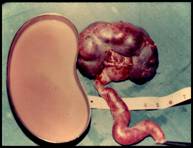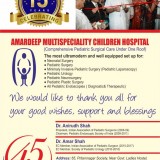What is a nephrectomy?
A nephrectomy is an operation to remove a kidney. The child generally needs to stay in hospital for up to 2-3 days.
Why does my child need to have this operation?
Your child will need this operation because a kidney is not working properly. This could cause infections which may damage the other kidney, and makes it more likely that your child will have high blood pressure at some point in their life. Being left with one kidney should not cause your child any problems.
What does the operation involve?
The surgeon will remove your child’s damaged kidney through a cut (incision) in his or her side. The operation takes between one to one-and-a-half hours.
Nowadays, this operation can also be done with the help of laparoscopy of minimally invasive surgery. This involves three small 5 mm holes on the side of the child and the kidney is removed without any cuts. When done laparoscopically, the hospital stay and pain in reduced.
Kidney with pus (Pyonephrosis)
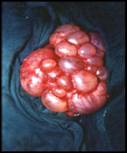
Multicystic Dysplastic Kidney
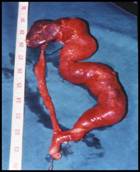
Obstructed Nonfunctioning Duplex kidney
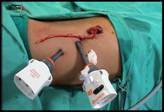
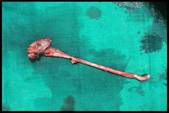
Kidney removed by Laparoscopy
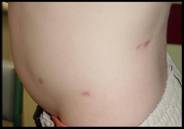
Post operative scars after Laparoscopic Nephrectomy
What happens after the operation?
Your child will be brought back to the ward to recover. He or she will be able to eat and drink soon after the operation.
Your child may have a tube (catheter) coming out of the bladder to drain away urine. This is usually removed two days after the operation and then you will be able to go home. Sutures are dissolvable and so you do not need to have them removed.
What are the risks of a nephrectomy?
All surgery carries a small risk of bleeding during or after the operation. After an anaesthetic some children may feel sick and vomit. They may have a headache, sore throat or feel dizzy. These side effects are usually short-lived and not severe.
Usually, there is only a small amount of bleeding, but occasionally a child may need to be given extra blood in the form of a transfusion.
When you get home
You should encourage, but not force, your child to drink.
The child may required pain relief medications if he has pain. The doctor will ask you to come for follow up examination a week after surgery.

